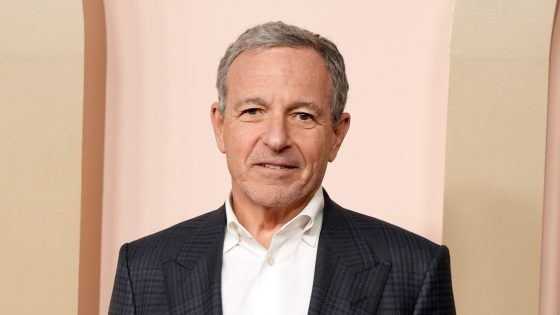Disney shareholders on Wednesday rejected board nominees allied with activist investor Nelson Peltz, ending a combative, months-long proxy battle centered on the company’s navigation of the topsy-turvy onset of the streaming era.
A majority of shareholders instead voted in support of a 12-person slate of board nominees put forward by Disney, the company announced at its annual shareholder meeting. (Disney is the parent company of ABC News.)
Trian Partners, the hedge fund founded by Peltz, had leveraged its standing as one of Disney’s largest shareholders to carry out a high-profile campaign critical of the company’s growth strategy, and insistent about a plan for a successor to 73-year-old current CEO Bob Iger.
Addressing the activist push at a Morgan Stanley investor conference earlier this month, Iger touted a recent strong stock performance run and dismissed Peltz’s campaign as an effort “designed to distract us.”
“Obviously, many of the businesses are experiencing the effect of disruption,” Iger added. “It’s one that takes not only a significant amount of knowledge, but a tremendous amount of time and focus.”
Peltz, 81, sought board seats for himself as well as former Disney Chief Financial Officer Jay Rasulo. They called on shareholders to deliver them the seats currently held by Maria Elena Lagomasino and Michael Froman.
The proxy war arrived as a shift to streaming upended the media business. Beset by cord-cutting and the decline of movie theater attendance, Disney has grown the audience for its bundle of streaming services, which include Disney+, Hulu, and ESPN+. However, the new platform has yet to turn a profit.
Via a website devoted to the activist campaign, titled “Restore the Magic,” Trian Partners calls on Disney management to “develop and articulate” a clear streaming strategy that can achieve “Netflix-like margins.”
Outlining a series of reforms, the website requests cost cuts for the streaming business, a full review of the creative process, and an emphasis on the acquisition of new intellectual property.
Nelson Peltz founding partner of Trian Fund Management LP. speak at the WSJD Live conference in Laguna Beach, Calif., Oct. 25, 2016.
Mike Blake/Reuters, FILE
For his part, Iger has said Disney is in the midst of a company transformation to address the streaming challenge identified by Peltz.
Disney+ has amassed 111.3 million subscribers over roughly five years since its launch, though the platform lost 1.3 million subscribers over the final three months of 2023, quarterly earnings in February showed.
The company said in the earnings report that it slashed streaming-related financial losses by $300 million over the three-month period, keeping it on pace to cut $7.5 billion in costs by the end of fiscal year 2024.
Cost cuts have helped boost Disney’s stock price 23% since a recent low in October, but the price remains down 30% from a high attained in March 2021.
The issue of succession is another key point of contention in the proxy fight.
During Iger’s first stint as Disney CEO, from 2005 to 2020, he managed to push back his departure multiple times. He returned to the position in November 2022 under an agreement to step aside again after two years, but months later the company announced a contract extension through 2026.
Trian Partners has urged the company to clarify its succession process and undertake an exhaustive search for Iger’s replacement, the activist campaign’s website says.
Upon receiving his contract extension nearly a year ago, Iger emphasized in a statement his commitment to a smooth succession.
“The importance of the succession process cannot be overstated, and as the Board continues to evaluate a highly qualified slate of internal and external candidates, I remain intensely focused on a successful transition,” Iger said.
Source Agencies


